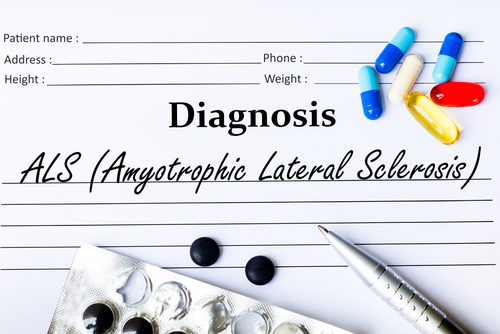Intense exercise may increase risk of ALS: Study
ANI Apr 24, 2018
Vigorous physical activity could heighten the risk of developing motor neurone disease - also known as amyotrophic lateral sclerosis suggests a study.

The "new class 1 evidence" prompts the researchers to speculate whether ALS might be a trade-off for the many well-known benefits of physical exercise on other aspects of health. ALS is a progressive, fatal neurodegenerative disease for which there is currently no treatment. Genes account for a proportion of cases, but a role for environmental factors, including physical activity, has also been mooted. But the evidence to date has been inconclusive, possibly because of the differences in research design and methods, say the researchers.
In a bid to try and plug this gap, they compared the lifestyles of 1557 adults newly diagnosed with ALS in their mid 60s in Ireland, Italy, and The Netherlands with those of 2922 similarly aged people who didn't have the condition. Each of the participants provided details of their educational attainment; lifestyle, including smoking and alcohol intake; employment history; and lifetime physical activity levels (weekly leisure and workplace quotas). Physical activity was measured in Metabolic Equivalent of Task (MET) minutes. These express the amount of energy (calories) expended per minute of physical activity.
Analysis of the data showed that lifetime physical activity was associated with a heightened risk of ALS, after taking account of potentially influential factors, such as age, sex, smoking and alcohol intake, and other potential workplace exposures. The heightened risk was six percent for leisure time activities; seven percent for workplace activities; and six percent for all activities combined. The associations were strongest among the Italian and Irish participants.
And the higher the MET score, the greater was the risk of ALS, which adds weight to other studies describing a higher prevalence of motor neurone disease among former professional athletes, say the researchers. This is an observational study, and as such, it can't establish causation. It was also based on recall, and factors such as diet, trauma or some metabolic or energy deficit induced by activity can't be ruled out, say the researchers. "An [increased risk of 6 percent] for all activities combined can be translated into a 26 percent increase in risk when comparing a person who is more active than average and a person who is less [so]," they explain.
While exercise is not likely to be a major factor in the development of ALS, this level of increased risk might be important in those who are genetically predisposed, they suggest. "Overall, [physical activity] has been demonstrated to be protective against many diseases, including cardiovascular disease, diabetes, and a variety of cancers," they point out, and suggest that "Decreasing the risk of these common conditions may be a trade-off with increasing the risk of a relatively rare disease such as ALS." The research has been published in the Journal of Neurology Neurosurgery & Psychiatry.
-
Exclusive Write-ups & Webinars by KOLs
-
Daily Quiz by specialty
-
Paid Market Research Surveys
-
Case discussions, News & Journals' summaries